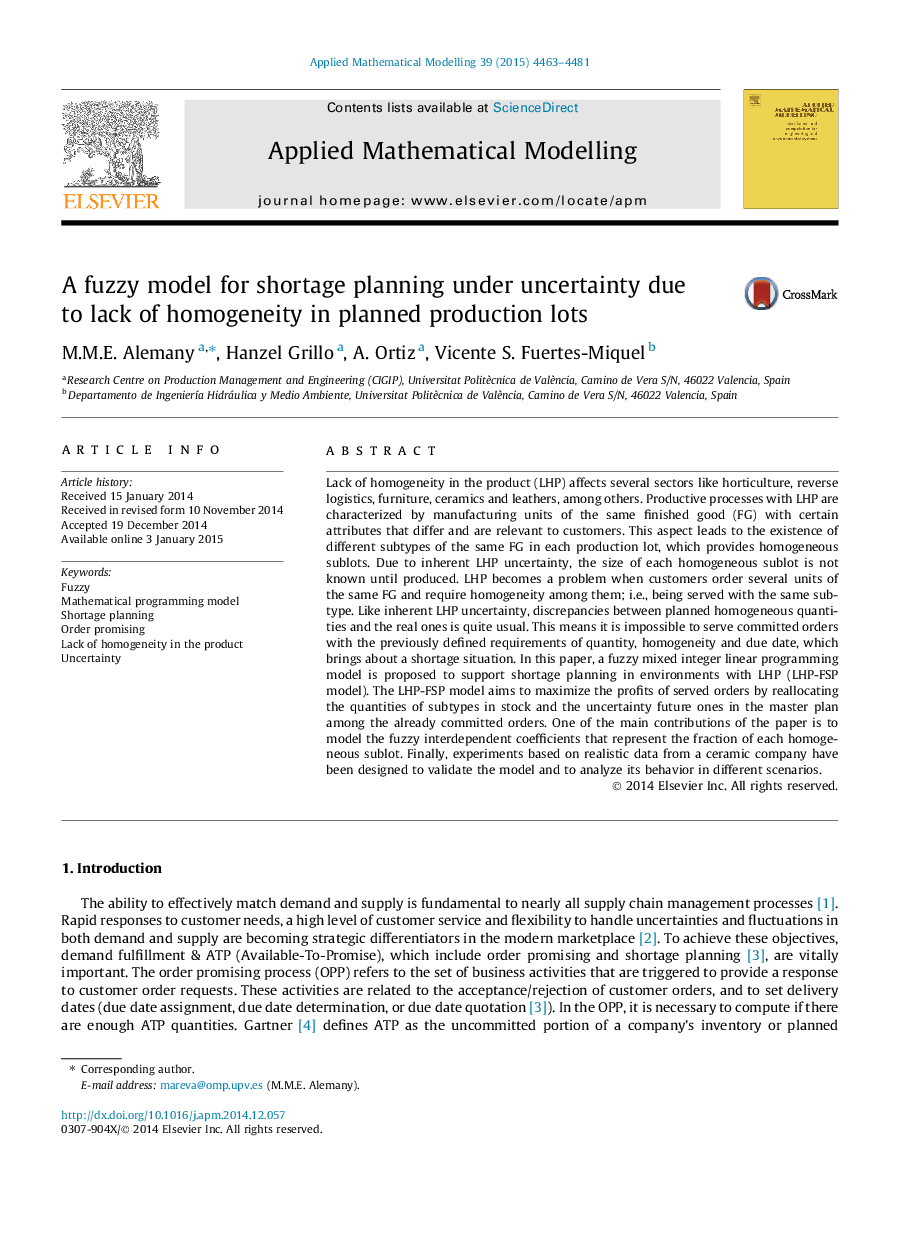| Article ID | Journal | Published Year | Pages | File Type |
|---|---|---|---|---|
| 1703431 | Applied Mathematical Modelling | 2015 | 19 Pages |
Abstract
Lack of homogeneity in the product (LHP) affects several sectors like horticulture, reverse logistics, furniture, ceramics and leathers, among others. Productive processes with LHP are characterized by manufacturing units of the same finished good (FG) with certain attributes that differ and are relevant to customers. This aspect leads to the existence of different subtypes of the same FG in each production lot, which provides homogeneous sublots. Due to inherent LHP uncertainty, the size of each homogeneous sublot is not known until produced. LHP becomes a problem when customers order several units of the same FG and require homogeneity among them; i.e., being served with the same subtype. Like inherent LHP uncertainty, discrepancies between planned homogeneous quantities and the real ones is quite usual. This means it is impossible to serve committed orders with the previously defined requirements of quantity, homogeneity and due date, which brings about a shortage situation. In this paper, a fuzzy mixed integer linear programming model is proposed to support shortage planning in environments with LHP (LHP-FSP model). The LHP-FSP model aims to maximize the profits of served orders by reallocating the quantities of subtypes in stock and the uncertainty future ones in the master plan among the already committed orders. One of the main contributions of the paper is to model the fuzzy interdependent coefficients that represent the fraction of each homogeneous sublot. Finally, experiments based on realistic data from a ceramic company have been designed to validate the model and to analyze its behavior in different scenarios.
Related Topics
Physical Sciences and Engineering
Engineering
Computational Mechanics
Authors
M.M.E. Alemany, Hanzel Grillo, A. Ortiz, Vicente S. Fuertes-Miquel,
